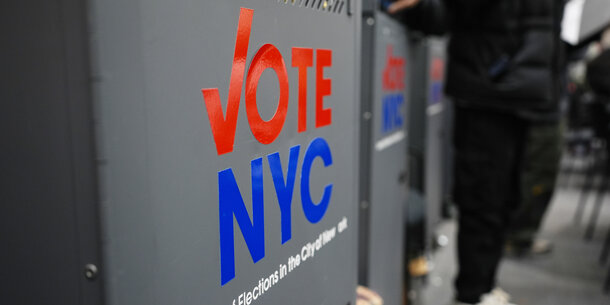This originally appeared in New York Magazine.
After the impeachment and acquittal of Donald Trump, we now confront the Republican Party we have — not the one we want or the nation needs, not the one we grew up with, not the one moored to conservative principles or moral judgment or even shame. Any senator who voted to acquit the former president in the face of the overwhelming case against him is a senator who today appears committed, even after the deadly Capitol insurrection, to undermining democratic rule — and Democratic rule. Once Republicans stopped competing for votes through policy, once they decided to win elections by trying to ensure that fewer citizens could vote, they were ready to be led by Trump.
In at least one way, the men and women who voted to acquit Trump — among the most craven political cowards in American history — gave Biden and the Democrats a gift. By refusing to hold Trump accountable for his “big lie” about election fraud, for downplaying the threat of anti-democratic forces, for gaslighting the nation about January 6, they’ve made it easier for those still tethered to reality, who do not wish to live under authoritarian rule, to support the prompt passage of two major democracy bills. The For the People Act and the John Lewis Voting Rights Amendment Act, imperfect though they may be, are still both worthy of ending the filibuster’s reign over the Senate. In fact, both of those laws would help end the need for filibusters in the first place, by fixing much of what is so horribly wrong about the Senate itself.
The For the People Act would make it easier for citizens to register to vote and guarantee early-voting days. It would ban partisan gerrymandering for congressional seats, a step toward eliminating the election of insurrectionists to Congress. The well-named John Lewis Act responds at last to the Supreme Court’s gutting of the Voting Rights Act in 2013. The new bill would make it harder for local officials to suppress votes. These measures are popular. They are lawful. They would benefit Republican and Democratic voters alike. And they strengthen democracy at a time when its domestic enemies are powerful and prevalent.
The impeachment trial is indeed a reminder that the Senate GOP stands for little today but the exercise of power for power’s sake. So maybe Senate Democrats should rawly exercise their own power for the sake of the Republic? Partisanship to abide a failed president or to manipulate the makeup of a Supreme Court is one thing; partisanship to enact popular, pro-democracy measures is quite another. It’s time for Democrats to stop pretending Congress is what it was a generation ago, time to stop ignoring the nihilism at the heart of the Republican caucus. Besides, the American people consistently support election reform and voting rights.
Broad pro-democracy reforms are necessary — now, today, this week — not just because they will help insulate the nation from the sort of shady tactics that marked the run-up to the November election or the baseless conspiracy theories that emerged in the wake of the vote. We need to fix voting rights and election systems in 2021, because things will likely only get worse in 2022. My colleagues at the Brennan Center for Justice have identified at least 106 measures in 28 states introduced by Republican lawmakers since the last election, four times more than last year, designed to suppress votes by restricting voter access to ballot boxes.
In some cases lawmakers want to restrict the sort of mail-in voting that was so popular (and secure) in 2020. In other instances, legislators want to reduce the number of polling stations. In Arizona, which Trump lost, there is a proposed bill to give legislators the power to overrule state election officials and the popular vote. In Pennsylvania, another state which Trump lost, Republican lawmakers introduced no fewer than 14 voter-suppression measures. You get the idea: Republicans are unwilling to compete on policy and unwilling to lose again, so they are going to try to disenfranchise the people they know will vote against them. Some measures will sink, but others will become law.
Sink or swim, the measures send the same signal local GOP officials send when they censure or otherwise punish the few Republican members of Congress who were brave enough to stand up to the Trumpists in the end. If anything, state and local GOP officials are even more in the thrall of the Trumpists’ authoritarian agenda than most Republican senators, and they are more committed to suppressing votes and undermining nonpartisan election rules. Given this harsh reality, there is simply no way that Biden will find ten votes among the GOP caucus in the Senate to pass the For the People Act or the John Lewis Act over a Republican filibuster.
And the president should say so. If a divided nation can unify around one thing, he should say that our elections need to be safer and more secure. If the 2020 election taught us anything, he should say, it is that every person who has a right to vote should be able to do so and have confidence that vote will be counted accurately. If the failed insurrection and the response to it by congressional Republicans has taught us anything, he should add, it is that we must restore and re-nourish democracy so that it is ready for the existential fight ahead. We shouldn’t be afraid to say such scary words. Sadly, the moment matches them.
The White House and congressional Democrats should move forward knowing that the potent political forces arrayed against reform will dredge up all the tired (often racist) lies about voter fraud. They should move forward knowing that the constitutionality of the reform measures ultimately may be decided by the most radically conservative Supreme Court in a century. These are risks and realities that cannot be avoided. The biggest risk is doing nothing with Democratic majorities that may be swept away in 2022 because of voter suppression. The biggest risk is failing to guarantee that the 2020 election was not our last free and fair election.
Abolish the filibuster. Convince reluctant Democrats like Joe Manchin and Kyrsten Sinema that the path to their own political salvation, and those of their constituents, lies in protecting voting rights and election systems right now. Convince Mitt Romney that he can do still more to save the Republican Party he remembers, by forcing it to confront the political consequences of its dangerous extremism. One of the first things the new gerrymandering rules will do is push more moderates, of both parties, into the halls of Congress. I suspect that is a wildly popular concept among the American people.
Pass these two landmark bills, even if it means the deciding votes are cast by Vice-President Kamala Harris. Don’t wait. Do it now. Let that be the response to Trump and his enablers on Capitol Hill. Let that be the answer to sedition and insurrection. When they went low, most of the rest of the nation went high. When they turned to political violence and threats, others turned to the ballot box. When they turned to conspiracy theories, others turned to civil rights. When they moved to overthrow an election and the Constitution, others moved to protect the vote and give more citizens the opportunity to choose who would govern them.


